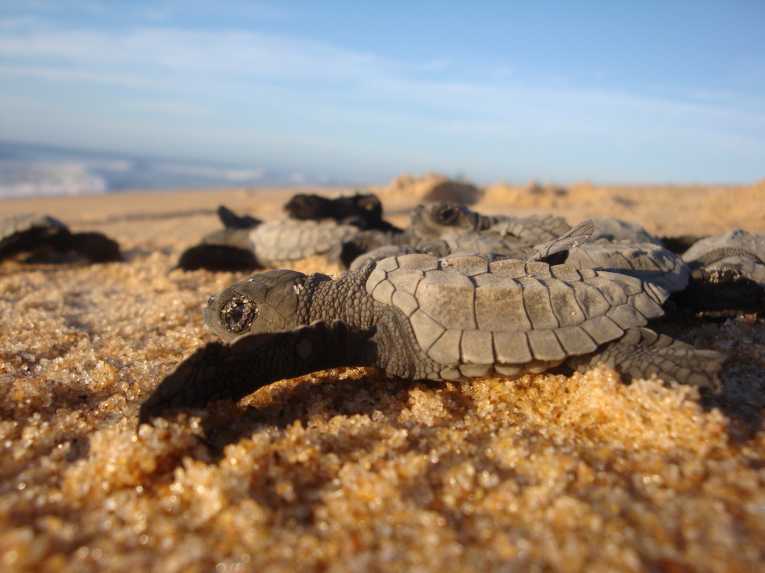Researchers from the University of California-Santa Cruz and the Wildlife Conservation Society, amongst others, tracked olive ridley turtles off the coast of Central Africa.
This is the first comprehensive tracking study of olive ridley turtles during the nesting season, using satellite transmitters to follow 18 female turtles. Olive ridley turtles spend most of their lives out at sea, but return to shore to lay their eggs. During the nesting season, turtles are at a much greater risk of being caught and drowned in fishing nets.
The researchers' findings provide a new and unexpected insight into the migration of olive ridley turtles. Sara Maxwell, lead author of the report, said ''Thousands of olive ridley sea turtles are caught every year in fishing nets along the coast of Central Africa, yet we previously had no understanding of their movements or what areas are critical to protect their populations''.
Both the Republic of Congo and Gabon have marine protected areas on their coastlines - Conkouati-Douli National Park and Mayumba National Park, respectively. These were set up to protect olive ridley and leatherback turtles from fishing nets.
Nevertheless, dozens of olive ridley turtles wash up on the shores of the national parks every year. The research revealed that turtles regularly swim outside the marine park boundaries, where they are captured by fishing nets. In addition, it was found that turtles tagged in Mayumba National Park spent more than half of their time in Republic of Congo waters, suggesting that international cooperation is vital to protect this species.
Scientists recommend the creation of an international marine park spanning the waters of Gabon and the Republic of Congo. The Wildlife Conservation Society is now working with the national park agencies in both countries to aid in the creation of the first international marine park in this region. Brendan Godley, coordinator of the Marine Turtle Research Group, says ''The proposal to combine and extend the protected area will be incredibly effective''.
The novel research has highlighted the critical importance of international cooperation in protecting migratory species such as sea turtles. This cross-border approach could be applied to land-based migratory species to ensure their continued survival.










